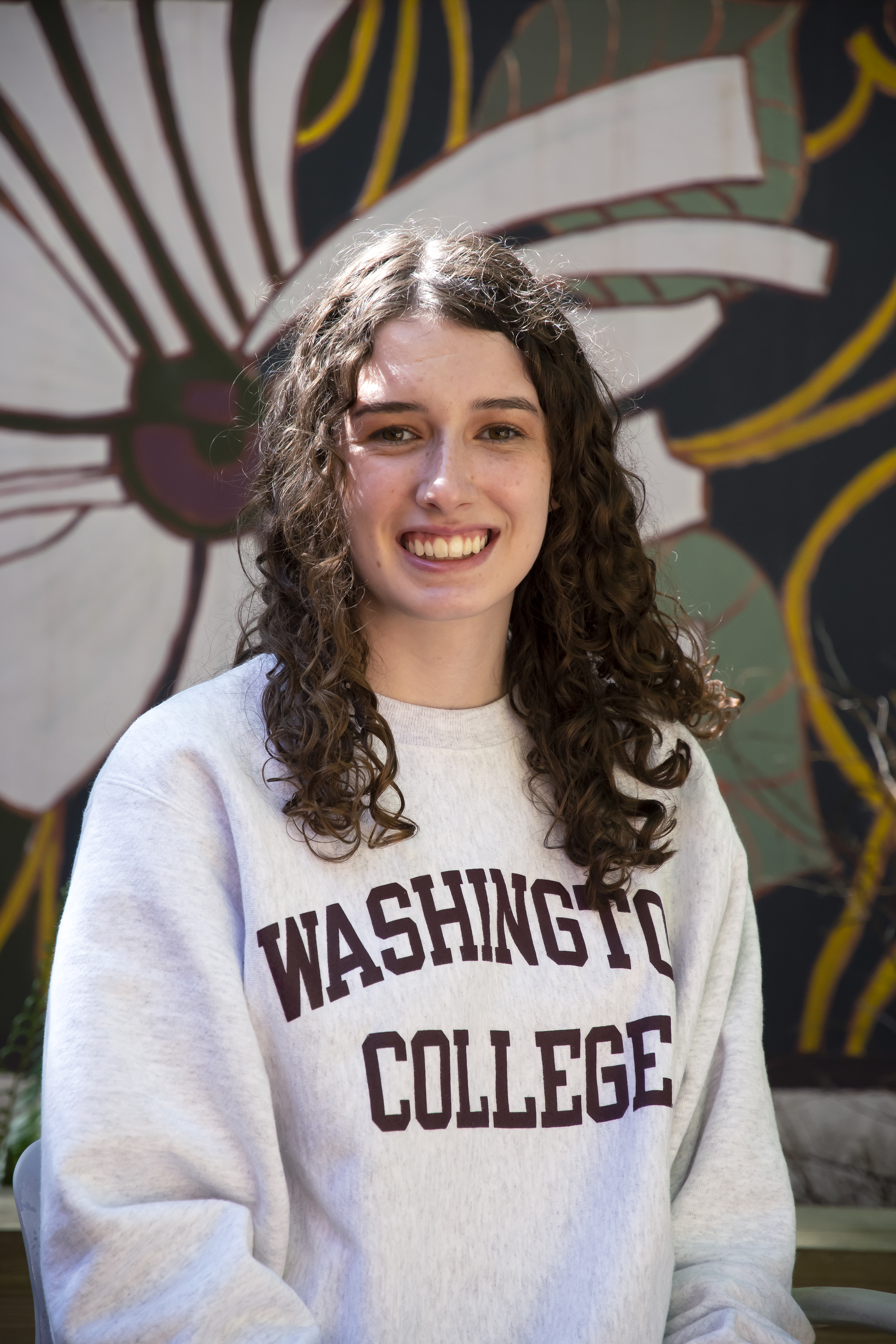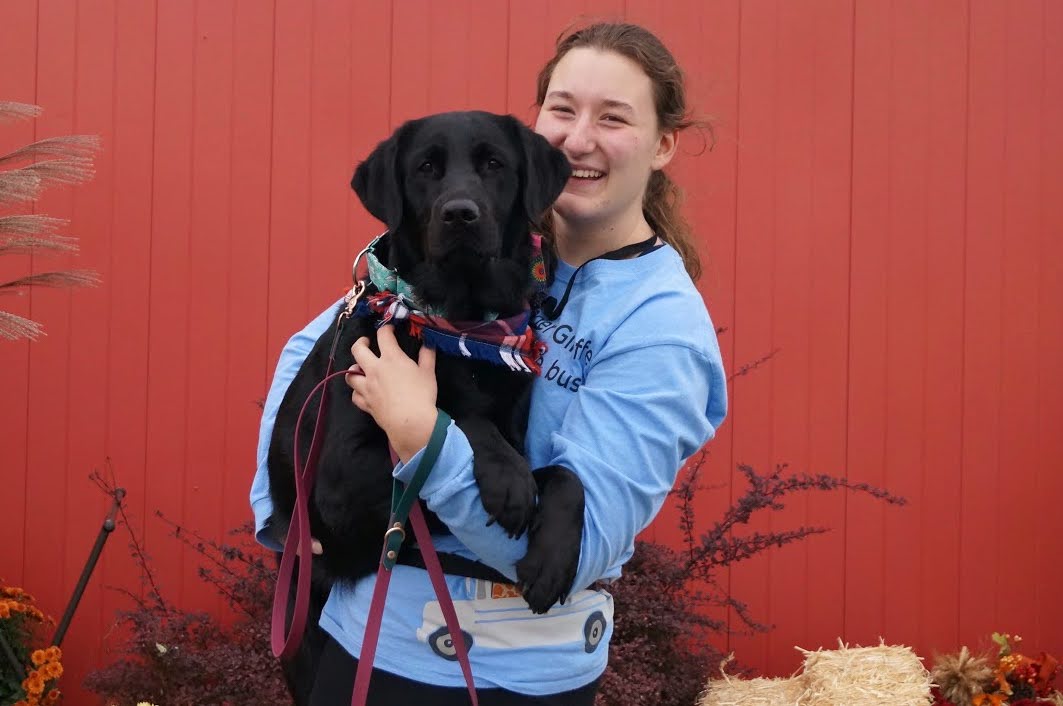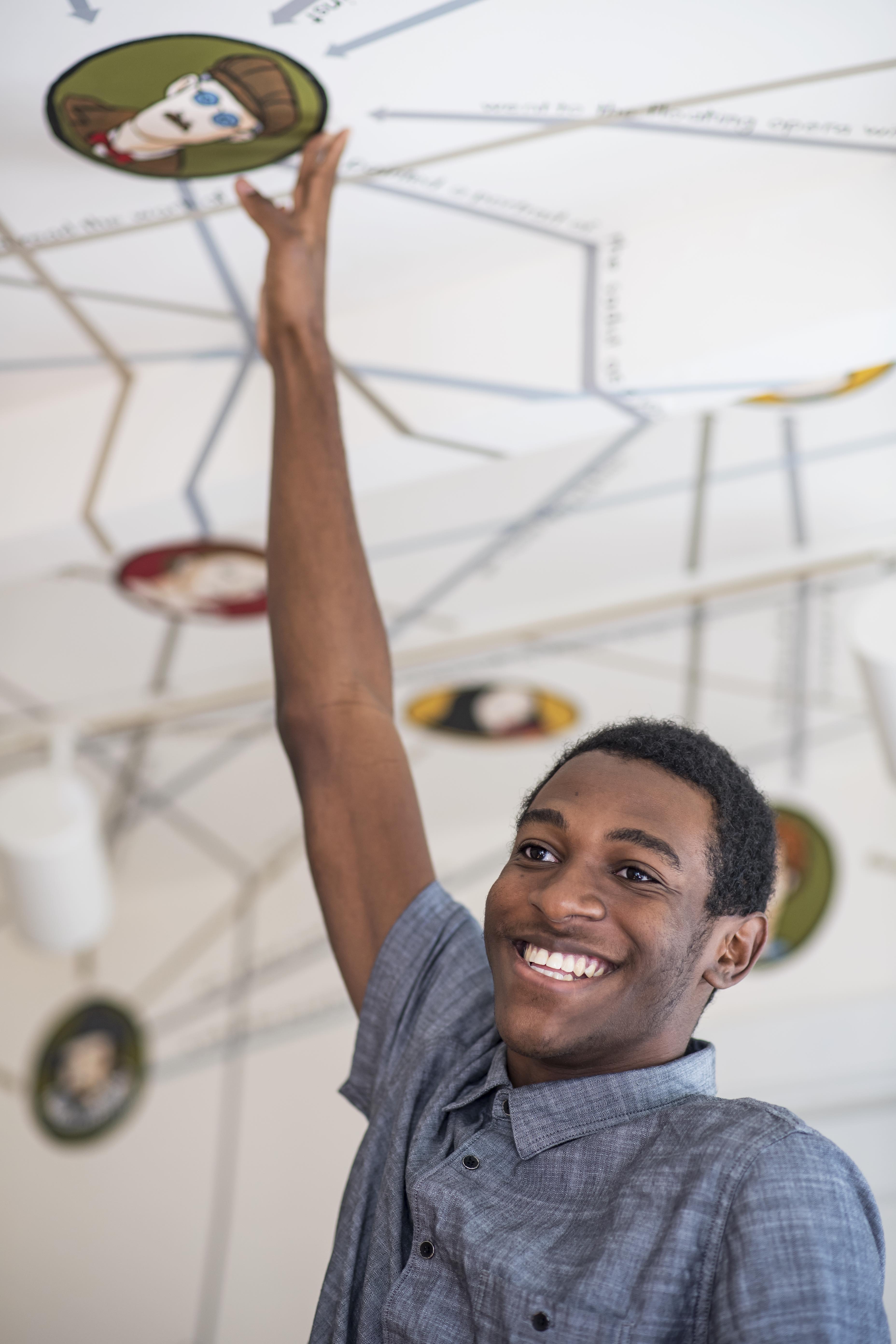
MAJORS AND MINORS
LEARN BY DOING
- Washington College Field School in Archaeology
- John S. Toll Science and Mathematics Fellows Apprentice, Environment and Society Fellows
EXTRACURRICULAR ACTIVITIES
- Cater Society of Junior Fellows
- Anthropology Club, President
SUPPORT FROM DONOR PROGRAM
- Founders Scholarship
- Environment & Society Fellowship

Emerging Tech Meets Archeology
Emma Poole
Class of 2024 • Easton, MarylandMAJORS AND MINORS
LEARN BY DOING
- Washington College Field School in Archaeology
- John S. Toll Science and Mathematics Fellows Apprentice, Environment and Society Fellows
EXTRACURRICULAR ACTIVITIES
- Cater Society of Junior Fellows
- Anthropology Club, President
SUPPORT FROM DONOR PROGRAM
- Founders Scholarship
- Environment & Society Fellowship
Anthropology major Emma Poole ’24, however, has been doing a lot of looking up. At drones. Specifically, ones that can augment “old-fashioned” archaeology lab work. Which is also how she found herself looking at a roomful of people at the Middle Atlantic Archaeological Conference (MAAC) in Ocean City, MD, this past March as she presented a paper she co-authored.
How did she end up on this path?
After completing her freshman year, Emma spent last summer doing field work with WC’s Archaeology Field School in Denton. At this colonial town site known as Barwick’s Ordinary, predated by an older Native American settlement, Emma engaged in plenty of hands-on archaeology: site discovery techniques, surveying, excavation, and recording.
Having grown up on the Eastern Shore, she wishes she’d had opportunities for similar experiences through her primary and secondary school. “We have public days where the site is open to the public – it’s great seeing kids come out and learn about the process and local history,” she recalls. “In [elementary and high] school we learned about national and regional history, and less about local history. I didn’t have that and I wish I did.”
That wish is partly why she is so passionate about archaeology. “What happened two centuries ago is still impacting this area economically and socially,” she says. “You see those things in the dig. At Barwick’s Ordinary, we are finding Native American artifacts. You can literally see how the culture and occupation has shifted over time.”
The following academic year, Associate Professor of Anthropology Julie Markin connected Emma with WC alum Jason Elder ’19. Jason, who works for Applied Archaeology and History Associates of Annapolis, had used drone technology to create a 3D virtual reality tour for the Denton site. Through an independent study and internship, Emma had been working on her own paper on how technology can be adapted to historic sites to further education and outreach.
The two decided to collaborate—Jason would describe the technology, and Emma would lay out its potential applications. Their paper was accepted by MAAC, and Emma and Jason gave a well-received talk about it.
“Drones can give people the experience of visiting a site without compromising its integrity. You don’t want the site vandalized or disturbed,” says Emma.
It can also give nonlocal kids, for whom a visit to the Eastern Shore might be too far for a school trip, the chance to experience the Denton site. “Annapolis kids could compare Anne Arundel and Caroline counties during the colonial era,” Emma says. She also notes that historical societies or archaeological groups can use this type of technology for education or building bridges within the community.
This summer, Emma will again be working at the field site in Denton, but this time as Lab Director. Ultimately, she hopes to attend graduate school in the United Kingdom and then return to the States to—no surprise—pursue field work or a career in forensic anthropology.

